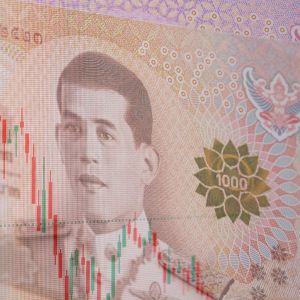Thailand considers removing tariffs on more goods imported from the United States.
3 min read
The Finance Minister of Thailand, Pichai Chunhavajira, said the country added a few items to its zero-tariff bracket on select products imported from the United States. Thailand also cut tariffs on 90% of its U.S. exports in a bid to persuade the U.S. to ease up on its 36% tariff rate on Thai goods. Chunhavajira explained that excluding more U.S. imports from levies was aimed at opening up trade between the two countries. Thailand committed to boosting bilateral trade by increasing its U.S. imports. The Finance Minister also mentioned that his government had prepared to offer around $6.1B (~200B Baht) in soft loans to reduce the impact of U.S. tariffs on local businesses. The U.S. threatened a 36% tariff on Thai imports if an agreement was not reached before August 1. However, Thailand hopes the Trump administration will consider reducing the rates after reviewing its proposed tariff cuts. The TNSC (Thai National Shippers Council) considered a 20% levy more manageable, adding that the 36% tariff rate would hike the costs of U.S. imports. It could also weaken competitiveness among domestic businesses. Chunhavajira believes the high tariffs could limit the growth of Thailand’s economy this year to just 1%, a drop from the 2.3% growth forecasted by the country’s central bank. According to the TNSC, vulnerable sectors included consumer goods, electronics, processed foods, rubber, and rice. The Council also believes that labor-intensive industries will likely experience job losses. Plummeting farm incomes could also increase pressure on rural economies. Chunhavajira says U.S. feedback guided the new tariff proposal Minister Chunhavajira claimed feedback from U.S. trade representatives guided the revised list of tax-exempted U.S. imports. He added that the improved proposal would balance trade with the U.S. within 10 years. The Finance Minister previously said that Thailand planned to import more U.S. natural gas and cut levies on U.S. corn. The Thai Feed Mill Association (TFMA) claimed U.S. corn was subject to an import tax of about 73%. Chunhavajira also asserted that trade talks between the two countries were expected to continue after the 90-day tariff pause ended. He pointed out that negotiations required consultations across multiple stakeholders. “I think the conditions that we have set are very favorable and should satisfy their needs…we are not offering zero tariffs across the board but we do offer zero tariffs for a significant number of products.” – Pichai Chunhavajira , Finance Minister and Deputy Prime Minister of Thailand Chunhavajira wondered why confirmation of the 36% tariff threat came before the U.S reviewed Thailand’s revised tariff proposal. However, he emphasized that the Thai government would maintain tariffs on 10% of U.S. imports. Thailand did this to protect domestic businesses from the impact of free trade agreements with other countries. Thailand weighs tariff impact on different sectors The Thai Commerce Ministry analyzed sector-specific impacts of Trump’s tariffs and planned to develop strategies to reduce the country’s dependence on the U.S. while diversifying its markets. The ministry also claimed that Thailand was considering tariff concessions on U.S. imports like grapes and apples, which were low-risk. At the same time, the Thai government was set on protecting sensitive products like pork, soybeans, and corn. The rubber industry was already down 36% YoY as it faced pressure from weak demand and the increased use of synthetic rubber, a U.S.-dominated market. The Federation of Thai Industries also estimated that if the current uncertainties were not cleared, the country could experience roughly 900 billion Baht in losses next year. The Federation said Thailand risked falling to fourth place behind Indonesia, Vietnam, and Malaysia as an ASEAN investment destination if the U.S. tariffs were not revised. Foreign Direct Investment (FDI) could move to Cambodia and other lower-cost countries, particularly in food processing, electronics, and machinery. The Board of Investments 2025 also said its FDI target of 800 billion Baht was at risk, warning that the broader economic fallout could see up to one million jobs lost. The Thai Chamber of Commerce also warned businesses were likely to shift towards automation if the country’s finalized tariffs exceeded Vietnam’s by over 5%. KEY Difference Wire : the secret tool crypto projects use to get guaranteed media coverage

Source: Cryptopolitan



